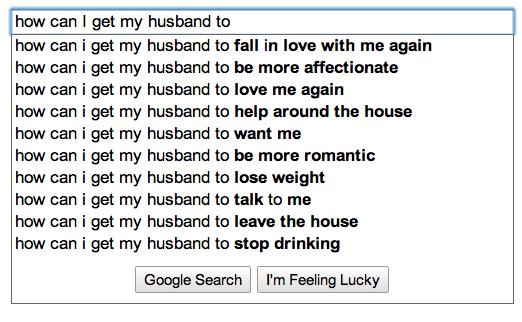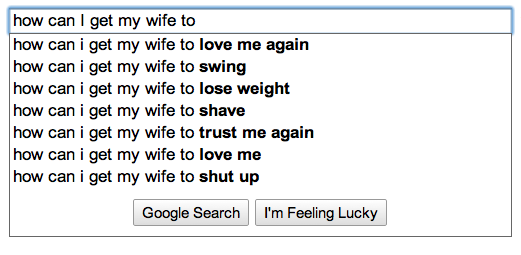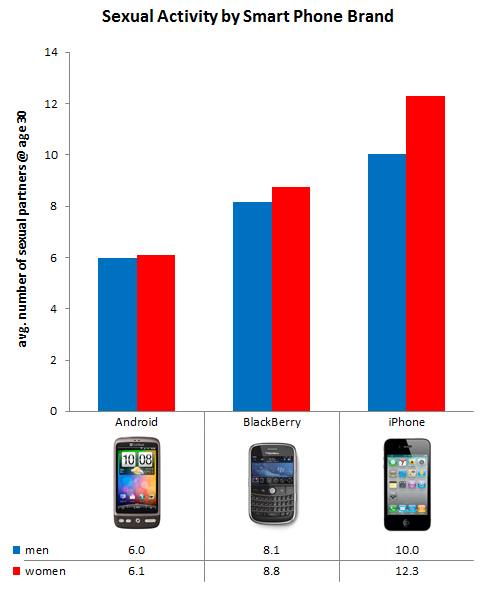Online Dating: Avoiding a bad Equilibrium
When going on a first date, we try to achieve a delicate balance between expressing ourselves, learning about the other person, but also not offending anyone — favoring friendly over controversial – even at the risk of sounding dull. This approach might be best exemplified by an amusing quote from the film Best in Show: “We have so much in common, we both love soup and snow peas, we love the outdoors, and talking and not talking. We could not talk or talk forever and still find things to not talk about.” Basically, in an attempt to coordinate on the right dating strategy, we stick to universally shared interests like food or the weather. It’s easy to talk about our views on mushroom and anchovies, and the topic arises easily over dinner at a pizzeria – still, that doesn’t guarantee a stimulating conversation, and certainly not a real measure of our long-term romantic match.
This is what economists call a bad equilibrium – it is a strategy that all the players in the game can adopt and converge on – but it is not a desirable outcome for anyone.
We decided to look at this problem in the context of online dating. We picked apart emails sent between online daters, prepared to dissect the juicy details of first introductions. And we found a general trend supporting the idea that people like to maintain boring equilibrium at all costs: we found a lot of people who may, in actuality, have interesting things to say, but presented themselves as utterly insipid in their written conversations. The dialogue was boring, consisting mainly of questions like, “Where did you go to college?” or “What are your hobbies?” “What is your line of work?” etc.
We sensed a compulsion to avoid rocking the boat, and so we decided to push these hesitant daters overboard. What did we do? We limited the type of discussions that online daters could engage in by eliminating their ability to ask anything that they wanted and giving them a preset list of questions and allowing them to ask only these questions. The questions we chose had nothing to do with the weather and how many brothers and sisters they have, and instead all the questions were interesting and personally revealing (ie., “how many romantic partners did you have?”, “When was your last breakup?”, “Do you have any STDs?”, “Have you ever broken someone’s heart?”, “How do you feel about abortion?”). Our daters had to choose questions from the list to ask another dater, and could not ask anything else. They were forced to risk it by posing questions that are considered outside of generally accepted bounds. And their partners responded, creating much livelier conversations than we had seen when daters came up with their own questions. Instead of talking about the World Cup or their favorite desserts, they shared their innermost fears or told the story of losing their virginity. Everyone, both sender and replier, was happier with the interaction.
What we learned from this little experiment is that when people are free to choose what type of discussions they want to have, they often gravitate toward an equilibrium that is easy to maintain but one that no one really enjoys or benefits from. The good news is that if we restrict the equilibria we can get people to gravitate toward behaviors that are better for everyone (more generally this suggests that some restricted marketplaces can yield more desirable outcomes).
And what can you do personally with this idea? Think about what you can do to make sure that your discussions are not the boring but not risky type. Maybe set the rules of discussion upfront and get your partner to agree that tonight you will only ask questions and talk about things you are truly interested in. Maybe you can agree to ask 5 difficult questions first, instead of wasting time talking about your favorite colors. Or maybe we can create a list of topics that are not allowed. By forcing people to step out of their comfort zone, risk tipping the relationship equilibria, we might ultimately gain more.
Sex and Smart Phones
Popular online dating site OkCupid recently released some numbers users reported regarding their sex lives. One interesting correlation was between smart phone usage and number of sexual partners. As you see below, women iPhone users (at the age of 30) report having had 12.3 sexual partners, over twice as many as women Android users. Male smart phone users show a similar jump: from 6.0 sexual partners on Android to 10 on the iPhone. Blackberry users fall almost exactly in the middle.
The conclusion seems very simple: Look for a cute iPhone owner to get lucky with.
But, being careful about interpreting correlational data (and an avid iPhone user, I might add), I’ll offer a bit of advice: Please consider an alternative explanation of this graph: that iPhone owners might simply be more prone to exaggerate…..
Mine — A short story
Inspired by Valentine’s Day “Mine” is a short story by sportswriter Patrick Dorsey about the steps that lead, or don’t lead, to a new relationship. Featured in this story are the Behavioral Economic principles of virtual ownership and the self-fulfilling prophesy.
.
What Husbands and Wives Search for on Google
A few days ago we looked at some telling search suggestions by Google when it came to what boyfriends and girlfriends searched for in their relationships. On the heels of this insight, I wanted to see what changes when we get older and get married…:

 What we find, both sides seem to care more about love, but in general the it seems that not much has changed since the days of dating for married couples. According to Google, these gender differences that we found earlier tend to persist…
What we find, both sides seem to care more about love, but in general the it seems that not much has changed since the days of dating for married couples. According to Google, these gender differences that we found earlier tend to persist…
For a very elegant tool that lets you play with such searches, see: http://hint.fm/seer/
What boyfriends and girlfriends search for on Google
You know how Google sometimes “predicts” what you might be searching for by giving you a little drop down menu of suggested search queries? These suggestions, of course, are based on what other users frequently search. So I tried teasing out some gender differences. Look at the pictures below.
This shows Google’s remarkable power as a source of data on a range of human behaviors, emotions, and opinions. It gives us insights into what people might care the most about concerning a given topic. When people search a particular political leader, what are their main concerns? What are people secretly guilty about? For better or for worse, Google’s obsession with collecting and refining data has given us a window into each other’s fascinating and telling curiosities.
Sexiling at Tufts (by Jared Wolfe)
Many awkward situations inevitably arise from the college roommate situation, most of which do not have a clear-cut solution. For instance, should you try to get your roommate to take out the garbage for a change? Should you tell your roommate to stop playing M.I.A.’s “Paper Planes” from his or her laptop 9 times a day? Should you tell your roommate it’s not cool to have to get kicked out of the room for 15 minutes every time your roommate brings someone back to have sex with? This last quandary brings up the notorious practice of “sexiling,” in which college students “exile” roommates from their room for a period of time so that they could have sex. This has become a relatively common practice on campuses because one alternative would simply be to have sex while your roommate is in the room, which brings up its own obvious issues. The other alternative, of course, is not to have sex at all. But, c’mon, is that really an option to many horny college students?
But Tufts University has now officially banned “sexiling,” stating that “any sexual activity in the room should not interfere with a roommate’s privacy, study habits, or sleep.” Besides the obvious question of whether or not this is even enforceable (“Excuse me…campus police? My roommate is currently having sex while I’m here trying to sleep!”), it raises a number of interesting psychological issues that suggest not only its inevitable failure as a policy, but also its indirect effect on the roommate dynamic.
First of all, even if students simply giggle at this new policy and passively accept it by not directly fighting against it right now, this does not mean that the practice will stop at all. Dan’s “laptop” study showed that people do not realize what desires they will succumb to when they are in a “hot” state (eg, horny) while they are in a “colder” state. So when it comes to sex at Tufts (or any college for that matter), students may be currently thinking something along the lines of “OK, I guess this rule makes sense. I wouldn’t want to have sex while my roommate is sitting there studying Orgo anyway.” However, when the moment of passion comes, that same person might not be able to resist the urge to have sex- whether that means kicking the roommate out of the room or having sex while the roommate is studying or trying to sleep. We simply do not know the decisions that we will make in certain states when we are not currently in that state.
My second point is that this new anti-“sexiling” rule could- perhaps ironically- damage the roommate-roommate relationship. Roommates generally have explicit or implicit social contracts with each other, filled with all sorts of social norms. For instance, roommates may understand that if one is “forced” to leave the room so that the other could have sex, the other will inevitably hit him or her back with a favor later on. Basically, these social contracts between roommates help in the cultivation of a relationship between the two and the imposition of rules from the college administration may undermine this relationship. Now, instead of, say, Roommate #1 being grateful that Roommate #2 was nice enough to wait until Roommate #1 went to the gym before having sex, Roommate #1 may think that Roommate #2 just didn’t want to get slapped with a punishment from Tufts.
And finally, it is a shame when institutions set stupid rules, but it is particularly sad when a university does not study a topic, and test it out before trying something like this.
Dear Irrational (Does it Pay to Play Hard to Get?)
Dear Irrational,
I recently met a great guy – let’s call him George – and now I can’t stop thinking about him. Though we’ve only been on a couple dinner dates, he’s officially won me over.
Now here’s my problem: Smitten as I am, I’m ready to hop into bed with George this very minute, but I’m not sure that’s the best idea. After all, there must be some reason that all those books and magazines (not to mention my mother) champion the make-him-wait rule. But does it really work? I’ve never followed it in the past, but then, I can’t say I have the best dating track record either.
What do you think? Should I play hard to get, or no? Help!
Sincerely,
Unsure
——
Dear Unsure,
Your mother is right: making the guy sweat a little (no, not like that) is in your best interest if you want to maximize the chances f a long term relationship. The reason lies in cognitive dissonance, which refers to what we do when our beliefs and actions misalign: Can’t change the cold, hard facts? Then change your beliefs!
The classic experiment here comes from psychologists Leon Festinger and James Carlsmith, who had participants perform a boring task and then paid them either $20 or $1 to convince someone else that the task had been great fun. Everyone then rated the task, with the result that the $1 participants rated the task more positively than did the $20 crew. While the $20 group could explain away the dissonance between their action (“I told someone the task was riveting”) and their belief (“It actually bored me to tears”) via money (“I was paid to promote the task”), the $1 individuals could not because they could not justify misleading others for such a small amount of money– so they changed their initial belief (“I must really like the task, to have promoted it”) and they ended up rating the task more positively.
To give you an example that is closer to our social life, look at fraternities: loyalty to frats increases with the amount of hazing, since pledges tell themselves, “I did a lot of embarrassing stuff for my frat – it must really matter to me.”
So, going back to your dilemma, Unsure, cognitive dissonance suggests that if you really want a guy, you have to create a dissonance for him, so that he will say, “Wow, if I put in all this effort for the woman – I must love her.”
This means that instead of putting out early, you have George pursue you. Instead of splitting the check, you let him pick up the entire tab. Instead of calling him up and suggesting dates, you leave the calling and planning up to him. In other words, make him work, and he will rationalize it by deciding he loves you.
Good luck.
Irrationally yours,
Dan
p.s please don’t tell George about my advice, and who gave it to you
Valentine’s Blog
Given Valentine’s Day and the state of the market, let’s consider which approach to finding love is better: 1) the free market system where everyone can find their own date and figure out who and what is best for themselves; or 2) a regulated market where your parents, family, or perhaps some kind of matchmaker have a say. This may be an impractical question these days (how many people let their mothers set them up?), but this is still a complex problem that’s been discussed for millennia, without any apparent solution. But here’s a boon for anyone who is starting to lose hope of finding love: a study that shows the importance of commitment to happiness.
The world of dating has grown increasingly complex, we have online dating, speed dating, casual dating, traditional dating (I think it’s still around anyway), and so on. The problem is, that with so many options, commitment to a relationship becomes difficult—you never know if there’s someone more perfect for you just around the corner. In a world where switching partners is difficult, people are likely to hang on and attempt to work things out. But in a world where it’s easy, or seems easy, to switch partners, people are likely to give up when things first go wrong. And yet, the ever-present temptation that there is someone out there who is better can be incredibly devastating to our personal happiness.
So we have to wonder then, how important is commitment? Dan Gilbert and Jane Ebert conducted a study with this question in mind using photography. In their experiment, they gave students a short course in taking black and white photos and taught them how to develop their pictures in the darkroom. Half the people were told that they could pick one of their pictures to be professionally enlarged and developed, which they could then keep. The other half were told to pick two pictures to keep, and that they could change their minds until the minute that the film was sent off. These people had a continual temptation to change their choices, so they had time to consider and reconsider which of their prints were the best.
Later, each participant was asked to rate their level of happiness with their prints. Guess who was happier, those who chose a photo and stuck with it, or those who had flexibility and time to make the perfect selection? As it turned out, the people who could alter their choices were much less happy than the first group. The principle behind this is that when we have to deal with a certain reality, we get used to it and often come to prefer it. But if we think we can change it, we don’t force ourselves to cope, so inevitable imperfections—whether in people or in pictures—can drive us to distraction. And the same thing happens with marriage. If we think of marriage as an open market and always have half an eye on other options, we’ll be less likely to be happy.
Can canoeing be a good test for compatibility?
10 year anniversary
Yesterday was Sumi’s (my lovely wife) and my 10 year wedding anniversary.

It took me a while to figure out what to do for this event and at the end I decided on two things: First, I booked us a night at the same bed & breakfast where we got married 10 years ago. This was a slightly risky move because there was a chance that the place will not be as wonderful or romantic as we remember, and this will spoil the wonderful memories we have from our wedding day. Luckily this was not the case, and the place was just as wonderful and romantic as we remembered. (more…)
 Tweet
Tweet  Like
Like 

